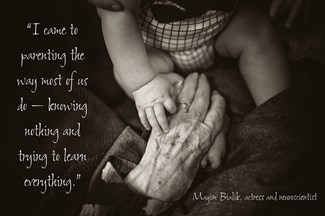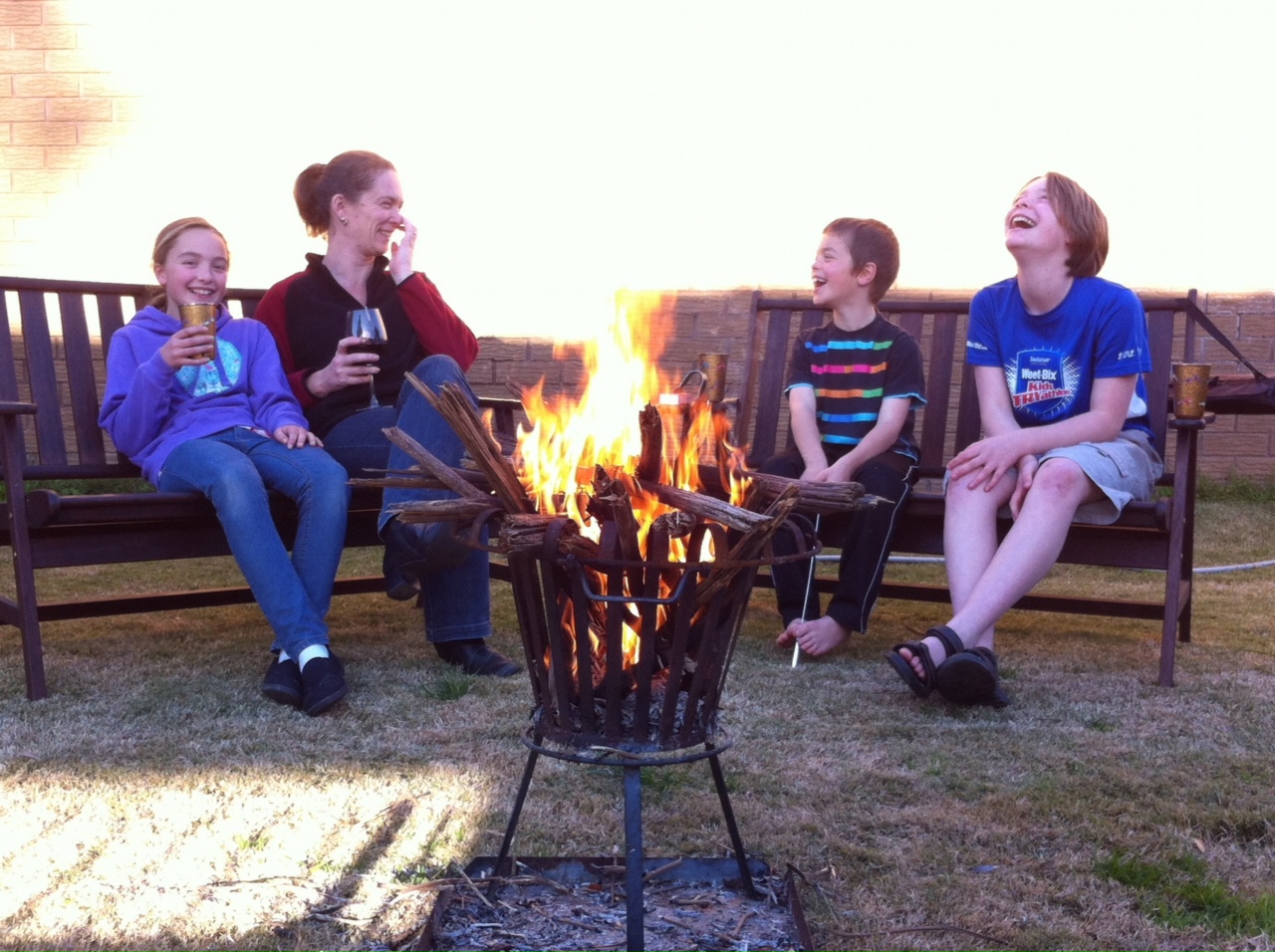I was a stay at home mum for the first five years of being a parent. I remember walking with my own parents with my baby in the pram and admitting to them that I couldn’t go back to work. My job was to look after this little being as I was the best one to ensure all their needs were met and their intellect and growth stimulated.
Then I stayed home out of necessity, choice long gone, because I had two babies and my child was unwell and couldn’t be left with anyone else. It started to get tricky. I admitted to my mum and dad after moving towns that I really needed to go back to work for my own sanity.

When my eldest went to school and with three children at my feet I went out to work putting my 3 year old and my 8 month old baby into childcare. Only two days a week, granted, but it felt like hell every single time I dropped them off. Ostensibly they loved it and I, too, flourished with the intellectual stimulation in the workplace.
Now I’m home again where I am realising just how much teenage kidults need their parents. I’m proud to be able to provide that support but I find myself once again trying to justify being at home.
So I found myself listening with real interest to Mia Freedman’s interview with Virginia Tapscott about her recent opinion piece in The Oz. Virginia lamented the lack of value placed on women who choose to leave the paid workforce to provide care for their own children. After the birth of her second child Virginia researched the biological and neurological connections that link baby to mother in particular and espouses why that means ‘stay at home mum’ is best. Now with four children Virginia argues that a stay at home parent brings value that demands social and economic recognition. She wants to feel recognised. She wants to be paid.
I get it. I know what that feels like. It can be frustrating and demeaning and belittling.
Mia countered these assertions with her own perspective including how mind-numbingly boring the hours at home with a child can be. How intellectually dull being at home is. How she needed to get back into the workplace for her own mental health. Fit your own mask first, she asserts, isn’t that the most important part of parenting? A well mother is the key to a happy and adjusted child.
I get that too. It can be isolating and lonely and being at home can feel like your brain is shrivelling…
Both are right. I nodded vigorously at the points that both women made. And both women, as politely as they managed to debate their opposite perspectives, stayed away from what I think is actually the key point. The question we are scared to answer that determines whether or not we would ever consider paying a wage to someone who is ‘just a stay at home mum’.
What do we know matters in the best start for a child? A loving home matters. The education of the parents matters, their financial ability to provide good nutrition and safe housing matters. Safety, physical and psychological, matters. Parental wellbeing matters and infant personality and health plays a big part. How many more factors do you think I should include in this list because there are myriad more…
In my role as a speech pathologist I was privileged to work with a huge range of children and their parents. I’m not sure that I want to dip my toe too far into the fraught waters of judgement but I will confidently assert that I have also seen the huge range of competence in families. I spent many hours immersed in the research about early childhood development and the long term effects on an individual. I know that an engaged primary caregiver makes a difference, one who makes eye contact with and responds to a baby’s efforts to communicate. One who provides books and music and games and teaches a child how to be part of a community. A key adult who models emotional self-regulation and encourages exploration and failure alike, facilitates learning and curiosity. Provides nutritious food and opportunities to be physically active. Babies who have this are set for educational, social, and economic wellbeing, and they are on track for both physical and mental good health.
Wowsers. No pressure, fellow parents!
So how can I, or anyone for that matter, find some parity in this emotional debate about what is best?
All I could do was consider my own experience in both worlds. As I said earlier, I have worked as a health professional. It’s here that I find a platform on which I can establish some sort of logical basis to even begin the delicate argument. Health is a highly regulated industry. Becoming a clinician and then maintaining that permission to practice is a rigorous and ongoing process. There is the initial education at University where you must study and learn the skills and information needed to perform the role. You have to prove you understand it and can apply it in exams and in supervised practise. Then you go into the workplace where there is more supervision and oversight. The (costly) need to register your compliance with both practice and ongoing learning every single year. Should you step out of the profession there are stringent requirements you must meet to re-enter the workforce – proof of currency of both knowledge and skills yet again.
As a member of society I am beyond glad to know that my health practitioners have such a high level of accountability to the community for their ability and competency (check on those who can’t prove it to you, just a hint).
So could we apply a system of equal rigour and compliance to parenting? It’s an unpopular suggestion but go with me for a moment here. Let’s imagine what this would mean if we placed parenting on an equal standing as other professions with equivalent expectations in the eyes of society.
1. To become a parent you must first study and pass all the checks and balances to prove you are fit and equipped to provide a child with the means to live, survive and thrive.
2. To maintain your licence to parent you must present evidence EVERY YEAR that you have updated your knowledge and skills commensurate with your child’s needs and stage of development and are applying this skilfully.
3. Any breach of this licence must be defended and, if liability for a negative or less than expected outcome is proven, know that your licence to parent is suspended or cancelled along with the right to ‘parent from home’ or parent at all…
This is how we might consider equating value for money and cost for parenting compared to performing in the workforce and being paid for it. Extreme? Yup.
So what do I think? Having a child is a great responsibility. A baby is the beginning of a potential adult, one who will contribute to society in their own particular way, one who will be an important part of the world we live in. So, yes, it does matter that every single child gets the best start in life. The important concept there? Individuals. There is no one-size-fits-all way to go about this. And there is no simple checklist to complete (at least, none that we are willing to take) that takes all of the possible factors into account and comes out with an answer at the end determining who is the best person and what is the best style for that individual child to be brought up in.
I think it matters that childcare is high quality, available and affordable for those families who choose (through preference or necessity) to have both parents working outside of the home. It needs to be available for those children whose parents for whatever reason (capacity, illness, security) are unable to provide the environment needed to stimulate and nurture them. Which reminds me. Pay childcare workers more. They meet those criteria above and they earn it. No question. It also matters that parents who do choose to be the primary caregiver for their children have the resources that they need to do this successfully – financial, environmental, emotional and educational.
This is so very child, parent and family dependent that the idea of trying to set up a fair, ‘one size fits all’, evidence based and child focused model for stay at home parenting is still impossible. And it makes me feel really uncomfortable to even consider it. I like how different we all are!!!
Our society is social but it’s also economic. Until we can find a way to objectively measure AND value the ‘best’ way of bringing up every single child this unregulated industry of parenting will continue to be underpaid, undervalued, and fraught with emotional challenges you can barely believe until you step into the arena with your own child.
I’m really sad about it. I’m sad about it for the children who are trying to survive in homes that are unsafe and unloving. I am sad about it for the parents who want to but cannot afford to stay home and nurture their children through the first years of life. I am sad for the parents who feel guilty about returning to work even though it’s the best thing for them. I would dearly love to stand tall and proudly announce on LinkedIn that I am fully certified, registered and am full time parenting in 2022. (Got a promotion in recognition of my previous experience and the complexity of the job requirements this time, woohoo!). Ready to field the onslaught of competing job offers that come my way in favour of looking after my own brood.
So be nice. It still takes a village to raise a child.

Really interesting thoughts on the value of parenting. Financial value both to the family and to society is a challenging concept when it comes to parenting. Also, I love this picture and the improvements you’ve made to your site.
Possibly my favourite picture of all time!!!
Parenting and economics are so closely entwined and yet so foreign to one another in practice. I think we will be battling with it for a long time yet.